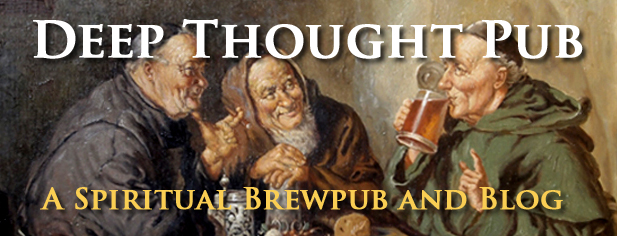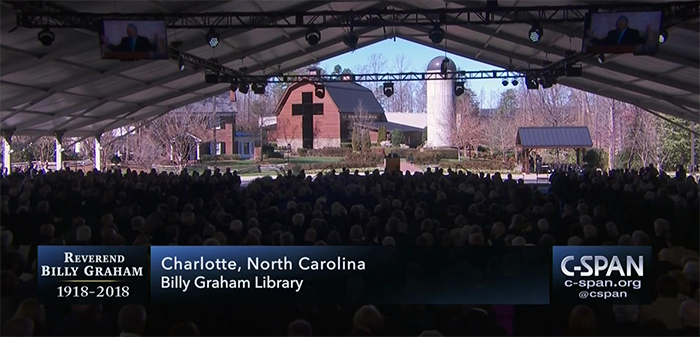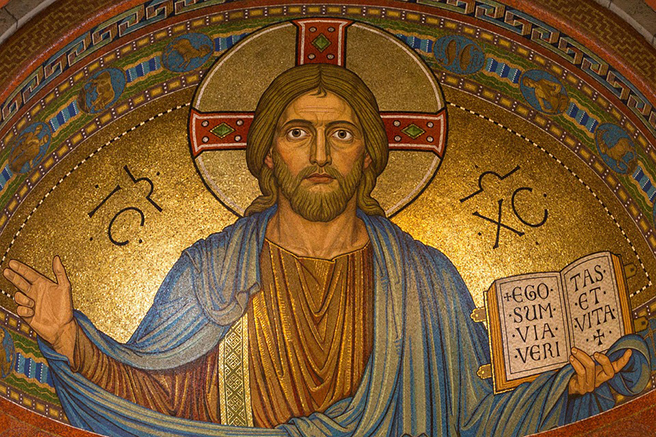Thanks for visiting. Blog topics are above. Learn about safely navigating a faith shift or the implications of history on spirituality. Do comment and share your views. Enjoy the ride!
![]()

I moved to new online digs! New workshops now available.

I pleased to announce my new website is launched:
www.spiritualbrewpub.com
It has fresh content that helps people through the spiritual deconstruction and reconstruction process. I’m also starting Freedom Workshops, both online and eventually in-person, that have specific content to help church burnouts and spiritual refugees.
Visit my new online digs and check out my podcast, videos, and the newest Deconstruction Workshop. Here’s a sample of the six one-hour sessions. I’ll see you at the new Spiritual Brewpub!
Spiritual Deconstruction Workshop
Intro – What Deconstruction Is and Is Not
The Core Problems
1 – Uncovering Fear and Cognitive Dissonance
Shedding the Light of History on Theology
2 – How the Bible was Compiled – Why it Starts Here
3 – Historical Light on the “Church” – What It Really Is
4 – Historical Light on Salvation – How Context and History Changes Everything
Getting the Support and Help You Need
5 – Cognitive and Philosophical Techniques to Make It Easier
6 – Finding Hope, Affirmation, and a Path Forward – How Reconstruction Works
Happy Hour
Brews, Banter, and Debrief
Learn more at Freedom Workshops
Julie Ferwerda Raises Hell and Puts the Doctrine Under Fire!
Julie Ferwerda, author of Raising Hell, joins Michael on The Spiritual Brewpub podcast for a fascinating conversation on what starts a person’s journey to question hell, what stages people go through to finally reject it, and how one’s life is changed for the better as a result. Julie shares what led her to see the emotional, logical, biblical, historical, and Jewish cultural evidence that debunks hell and how she was set free from fear-based faith and began to love people naturally.
She also gives advice to people who are questioning hell or other beliefs, whether secretly or publicly. How does one get through stages of deconstruction? Hear from Julie on that question and more–and her plans for her next book on addressing “the problem of evil.” Grab your favorite brew and join us!
How Some Trump Christians are Losing Their Souls

And others better be careful or they may too
Trump Christians are largely good people. Not all of them are complicit. Many have simply been misguided by false or exaggerated right-wing media narratives or by Trump’s truth-stretching and false claims. They watch Sean Hannity, Laura Ingraham, and Tucker Carlson, but ignore Shep Smith and Chris Wallace (the few on Fox News who critique the President). Or, they listen to Trump defenders on Christian outlets, such as Steve Strang at Charisma Media, who epitomizes tunnel vision when declaring Hillary as “bringing a level of corruption that we have never seen,” while he totally ignores Trump’s abuses of power. For Trump Christians, CNN and MSNBC are bastions of the left-wing that they ignore. So, they miss former Fox News analyst and retired US Army lieutenant colonel Ralph Peters’ many appearances on CNN, when he said Fox News has become a “propaganda machine” for the Trump administration and is “is assaulting our constitutional order and the rule of law, while fostering corrosive and unjustified paranoia among viewers.” [1] When confronted with Trump’s lies and misdeeds, Trump Christians believe each one these claims is largely a lie itself.But out of all President Trump’s defenders, Trump Christians who claim spiritual authority are the ones that should know better (in addition to those in Congress). They claim to be people of integrity with higher standards. People of principle. People of faith in a just God who warns of seven detestable behaviors, including, “haughty eyes, a lying tongue… a heart that devises wicked schemes, a false witness who pours out lies, and a person who stirs up conflict in the community.” (Proverbs 6:16). These defenders are the Franklin Grahams, Jerry Falwells, Jr., Steve Strangs, Michelle Bachmanns, Ralph Reeds, Robert Jeffresses, Christians in Congress, and any evangelical pastors who defend Trump. They endorse an unrepentant man who practices detestable behaviors.
The Mueller report has shed new light
Any fair reading of the Mueller Report concludes although there is not enough evidence to establish “conspiracy” (“collusion” is not a legal term), there is plenty to establish serious wrongdoing, lies, abuses of power, and “unquestionable evidence of obstruction of justice by the President,” says Jill Winebanks, former Watergate Assistant Special Prosecutor. In fact, up to 800 former federal prosecutors signed a document that stated that if Trump were not president and thus unprotected by a DOJ policy not to indict a sitting president, he would be charged with obstruction. [2]The Bible—A Record of Humanity’s Moral Development: the Good, the Bad, and the Ugly
Coming out of evangelicalism years ago, I always struggled with how to reconcile parts of the Bible. When I started to study history, however, there were several mysteries I solved about the Bible that totally blew me away and helped me finally make sense of most of it. I’m going to share those with you on today’s podcast.
Buckle your seat belts and let’s take a ride together off the mythological Bible Belt Interstate and onto the road-less-traveled historic Bible Byway.
What You Will Learn:
- Why the Bible can’t be inerrant and an altogether true record of history and God’s character
- Why the Bible should not, however, be viewed as irrelevant for today
- How the Bible is a collection of dissenting views on the character of God and human morality
- The ways the Bible critiques itself, e.g. in the sacrificial system and violent retribution narratives
- The stark contrast in the Bible’s narrative of violent sacrificial religion vs. social justice of the prophets and the non-violent love ethic of Jesus and Paul
- How the Bible can be viewed as a record of humanity’s moral development
- What narratives rise to the top that will help our local and global communities overcome conflict, violence, war, and harmful fundamentalist religion
Barbara Symons on How She Escaped Christianity and Found Christ
Author of “Escaping Christianity-Finding Christ,” Barbara Symons joins Michael for a lively conversation on her journey out of evangelical/charismatic/fundamentalist Christianity into a mystic awareness of Jesus. Learn how she was indoctrinated over decades into a “schizophrenic Christianity” and ultimately went through a sometimes painful, but an incredibly freeing deprogramming process.
Barbara and Michael discuss her largely experiential breakthroughs that led her to expose and overcome the cognitive dissonance within the modern conservative Christian movement and how her experiences dovetail with and validate Michael’s largely historical studies on Christianity.
Hear how Barbara came to recognize the Spirit behind her past experiences is cross cultural and not limited to one religious sect. She shares how she uncovered and discovered the metaphorical messages in scripture and how they advanced her understanding of Spiritual truth as it pertains to who we are, why we are here, and where we are going. Barbara helps us “embrace the Divine” outside debilitating and abusive religious systems.
Visit www.barbarasymons.com to learn more.
12 Fake Claims of Western Christianity – Part 2
What if we turned the concept of “fake news” on politics to examining fake claims about religion? What would we discover?
We’d find the DNA of ancient Christianity (i.e., Jesus’ teaching and peace movement) has suffered grave mutations that the Western Reformation never completely corrected, and in some cases, made worse. How can we know this? Through careful historical, biblical, and linguistic study. And how can the Jesus of history be authentic and much of this religion called Christianity be a scam? By an historical sleight of hand.
In this episode (Part 2), we discuss the remaining 7-12 major fake claims or scams that have been fostered by Western Christianity and ignorant or unsuspecting adherents about popular views of the meaning of the cross, the end times, women in the church, morality for the LGBT community, spiritual exchange, and justifying violence and war. (For fake claims #1-6, see Part 1).
Authors cited or quoted include, James Bernstein, Mark Heim, Marcus Borg, N.T. Wright, Josephus (first century), Ann Nyland, Jacque Ellul, Michael Hardin, Rene Girard, and Robin Meyers.
Interview Announcement: Michael announces the next episode will be an interview of Barbara Symons! Barbara is the author of “Escaping Christianity – Finding Christ” and has a lot of overlap with Michael on many experiences coming out of fundamentalism/evangelicalism.
Episode 3 – 12 Fake Claims or Scams of Western Christianity / Part 1
What if we turned the concept of “fake news” on politics to examining fake claims about religion? What would we discover?
We’d find the DNA of ancient Christianity (i.e., Jesus’ teaching and peace movement) has suffered grave mutations that the Western Reformation never completely corrected, and in some cases, made worse. How can we know this? Through careful historical, biblical, and linguistic study. And how can the Jesus of history be authentic and much of this religion called Christianity be a scam? By an historical sleight of hand.
In this episode, we discuss 12 major fake claims or scams that have been fostered by Western Christianity and unsuspecting adherents about popular views of the Bible, church, salvation, the cross, women, God’s character, the afterlife, the end times, sexuality, and war. By uncovering these fake claims, we reveal the non-religious, inclusive, egalitarian, and restorative love ethic of the first-century Jesus and his followers.
Episode 2 – Contrasting the Original Jesus Movement with Christianity
Welcome to The Spiritual Brewpub Podcast, a safe haven for ex-evangelicals or anyone restless about their faith or religion in general. In Episode 2, the topic is: Contrasting the Original Jesus Movement with Christianity – or The Difference Between Jesus and Christianity.
How it will help you: This episode will help you understand logical reasons you may have rejected evangelicalism, fundamentalism, church, and/or parts of the Bible, even though you still see the wisdom of Jesus. It will give you ideas on how to reconcile it all. Understand how the positive things you saw/see in Jesus got you into a religious system that turned out to be spiritually abusive. Then learn to differentiate the historical Jesus movement from the corruption found in modern religion and many churches so you can decide how to reconstruct or come to terms with your faith and experience.
Bonus Blurb: Learn the pitfalls of religion by hearing the “10 Reasons Beer is Better than Religion.”
Quote of the Week: The quote comes from Garry Wills, Author of “What Jesus Meant.” A critic of both evangelicalism and some liberal streams of religion, Garry helps us avoid religious traps and focus on what matters most.
Episode 1 – Why Understanding Good History Matters in One’s Spiritual Life
Welcome to The Spiritual Brewpub Podcast, a safe haven for ex-evangelicals or anyone restless about their faith or religion in general. On this Episode 1, the topic is: Why Understanding Good History Matters in One’s Spiritual Life – A Former Evangelical’s Discovery. Learn about the big idea that a sound study of history is critical to helping one form a spiritual worldview.
Most Christians, and I suspect most people in any religion, tend to forget or never really know their own religion’s history. As Diane Butler Bass says, we get spiritual amnesia. Only by remembering one’s history – whether that’s history of the church, the Bible, its compilation, or the history of the cultures of antiquity, can one get grounded.
By forgetting its history (or never really learning it or just having a biased or selective history), religion comes up with some really, wacky and wild ideas that need to be debunked. This podcast will focus on using good, comprehensive history to debunk some of these crazy ideas. But also show how good historical study not only leads to debunking things, but also leads to a more authentic spirituality. Grab your brew of choice and join us.
What Was Right with Billy Graham But Wrong with His Children Preaching at His Memorial

At Billy Graham’s memorial service on March 2, 2018, in which 2,000 people attended, his children Franklin and Anne used the opportunity to preach to the crowd. “My father followed Jesus all the way to heaven,” Franklin said. “How about you? If this were your funeral, would you be in heaven?” [CNN]
Daughter Anne Graham Lotz speculated on a prophetic meaning behind her father’s death, saying she believed it was a “…shot across the bow from heaven. …I believe God is saying: ‘Wake up, church. Wake up, world. Wake up, Anne. Jesus is coming. Jesus is coming.’” [Charisma]
There is “no better place” to convert to Christ than this funeral, Franklin added. “The world with all of its political correctness would lead you to believe that many roads lead to God, but that’s just not true. Jesus is the only way.”
For me, the passing of Billy Graham on February 21 brought back many memories from my 25-year journey inside evangelicalism, including this kind of preaching. As a teenager, seven years before I formally “joined” the movement (in evangelical terms, when I “accepted Christ”), I saw Billy speak at a huge Jesus Festival in Dallas, Texas. Despite his typical-fundamentalism-of-the-day sermon, I found Billy to be very likeable. He had a magnetic personality and an authoritative, yet kind voice. The words he spoke that night in Dallas echoed in my life for years to come. In time, some of his other teachings also impacted me, particularly as his mindset became less fundamentalist.
Yet as the years rolled on and my own evangelical faith evolved (I ultimately left it behind), I came to realize something about this famous evangelist:
Billy Graham was an honorable man trapped in a dishonorable religion.
The Historical Roots and Impact of Universalsim
![]()
I spoke at the 10th Anniversary Conference of the Christian Universalist Association, in Dallas, Texas on October 22, 2017. Learn more about the roots and impact of Universalism and the historical fallacy of the Doctrine of Hell. I welcome any comments or questions. Thanks goes to Rich Koster, Mary Keller, and Charles Slagle for welcoming me into the CUA and opening a door for me to speak at this year’s conference.
How the Religious Right Lost Its Mind

Earlier this month, Charles Sykes, published his book “How the Right Lost Its Mind.” A long-time Republican, Sykes describes the gradual evolution of conservative ideas and politics from the likes of intelligent, fair-minded William F. Buckley to the narcissist, reckless, liar Donald J. Trump. His conclusion, on how things changed, almost exactly parallels how the Religious Right lost its mind as well, as “…a movement based on ideas had devolved into a new tribalism that valued neither principle nor truth.”
For clarification, it should be obvious that I’m not saying here that all individuals who consider themselves part of the Religious or Political Right have lost their minds. I have many evangelical family and friends who are kind, decent, and thoughtful people and some of them voted for Trump. I’m drawing attention to the religious and political movements (to which individuals belong) that often take on a mind of their own and then gradually lose that mind.
Wild Goose Festival Paves a Better Way

Ever feel religious alienation? There’s a better way.
I’m honored to be invited to be a speaker at this year’s Wild Goose Festival – the intersection of spirituality, art, music, and social justice. The open-minded, celebratory atmosphere of speakers, storytellers, musicians, artists, and wayfarers who embody the grand themes of inclusive love, welcome honesty, social equality, and responsible theology is infectious. The craft beer tent doesn’t hurt either.
I’ll have a talk on “Jesus, Justice, and Spirituality Outside Organized Religion,” where I’ll share how traditional modern religion, historically speaking, barks up the wrong tree. And how God’s dream of love, equality, justice, and peace transcends all religions and works outside all religion.
The Sick Faith and Fake News of Those Who Warn People to Stay Outside The Shack

Blasphemous. Dangerous. Heresy. Unbiblical. These are the words religious purists use to describe the book The Shack and the recently released movie by the same name. Despite seeing a few good things in it, they are overwhelmingly critical.
But what horrors are in it that could possibly merit these warnings? Is it a bit too hokey? (It is. In his vision, the protagonist has meals and conversations with the holy Trinity and walks on water with Jesus). But no, nothing like that according to these hair-splitting legalists. To them, the big sins of The Shack, are that it makes God out to be too loving, overly forgiving, remarkably understanding, naively inclusive, irresponsibly lax on biblical/church authority, and nowhere near sectarian, religious, angry, and punishing enough to reflect the God of the Bible!
“If the God found in The Shack is the one people choose to follow, I fear they face grave eternal danger,” states evangelical critic Roger Patterson. “In the film, Papa [God] expresses only love and has no room for wrath, justice, or holiness… The God of The Shack is not interested in justice in an ultimate sense,” he adds in Staying Outside The Shack. Randy Alcorn also voiced concerns about the scriptural basis of The Shack in his similar review, Reflections on The Shack. Seattle pastor Mark Driscoll used to warn his congregation not to read it. Albert Mohler thinks the book’s popularity is due to a lack of “evangelical discernment.”
Hmm… let’s deconstruct this.
How Can We Know Something is True?

The President of the United States recently declared that the mainstream media—NY Times, NBC, CBS, ABC, and CNN—are enemies of the American people. He routinely calls them “fake news.” Kellyanne Conway, Counselor to the President, introduced the concept of “alternative facts.” Stephen Miller, Trump’s 31-year-old senior adviser, insisted on national television that “this issue is widely known by anyone who has worked in New Hampshire politics,” speaking of the claim that thousands of people were bused from Massachusetts to NH to vote against Trump, which explains why Trump lost that state.
The reason why these kinds of dialogues are in our national discourse is because many of us have abandoned a reasonable approach to determine whether something is true or not. People have bought into certain ideological frames so that news from a particular “liberal” source, like the N.Y. Times, or news from a particular “conservative” source, like Fox News, are automatically deemed false. Suddenly, every news outlet is on par with a supermarket tabloid, like the National Enquirer, that routinely prints baseless stories.
In the day of supposed fake news, how can we know something is true?
How Western Theology Screwed Up the Jesus Story

When someone studies the history of Christianity from its inception and really tries to be objective about it, he or she will inevitably discover how screwed up and tainted the Jesus Story has become over the centuries.
One way is how his teachings have been misconstrued as a formula for salvation. In the grocery store recently, a little girl, whose parents were standing close by, handed me a small card and said, “Would you like a Gospel tract?” I obliged and read it over. On it was a very brief explanation (with “proof” text Bible verses) of the major problem in life and its solution: Life is short, death and judgment is sure, sin is the cause, and Christ is the cure. The call to action was to pray a 17-word prayer to receive Jesus as one’s personal Savior. The Jesus epic had been boiled down to a “Get out of hell free” card in the game of life.
The source of this type of mentality cannot be traced to one fundamentalist church but rather to a long line of historical events that caused Jesus’ original message to evolve into our modern Western view of Christianity.
Disarming Evil With Love and Wine
When we hold a worldview that people are inherently bad and need law and order to suppress that badness, we will tend to react to hostility with either judgmental retaliation or defense. But if we believe people are not inherently bad; that they are only lost when they go down an evil path, our reaction to hostility might be dramatically different.
When Christ calls humanity to “love your enemies,” it is not merely a command to do the right thing but a strategy to diffuse evil and transform “bad” people into good–in other words a method to help them find their way home and back to their true self.
This NPR story demonstrates the power of love (what a psychologist would call non-complementary behavior) over hostility, when a woman offers a glass of wine to a man threatening murder and mayhem. Moreover, it is an example of the new spirituality we need in a world full of theologies of depravity and threats of terrorism. I would love to hear your thoughts.
The Ancient World & Spirituality – Podcasts

Recently, I was interviewed by Ron Way, a long-time talk show host, author, architect, corporate CEO, and amateur biblical scholar. It was arranged through my publisher Wipf & Stock for the AuthorTalk website. You can also listen to it here:
I was pleasantly surprised that Ron has interviewed people like Bart Ehrman, N.T. Wright, and Diana Butler Bass, and my interview displays on the same page as these incredible authors. As his website states, “Over the years, Ron Way has interviewed hundreds of religious leaders. These interviews are fascinating and informative. They delve into the ancient world of Jesus, Paul, Buddha, the Tao, the Dead Sea Scrolls, Islam, and more.”
Listen to my interview to learn about the connection between craft beer and an historically-grounded Jesus, thoughts on why first-century women followers of Christ were misrepresented in the Bible, why the New Testament needs to be read with knowledge of how it was compiled, mine and Ron’s ideas about the Jesus Seminar, and much more.
But don’t stop there. Ron has a whole slew of interviews that will perk your interest and bring you enlightenment, including conversations with the names listed above. Enjoy!

